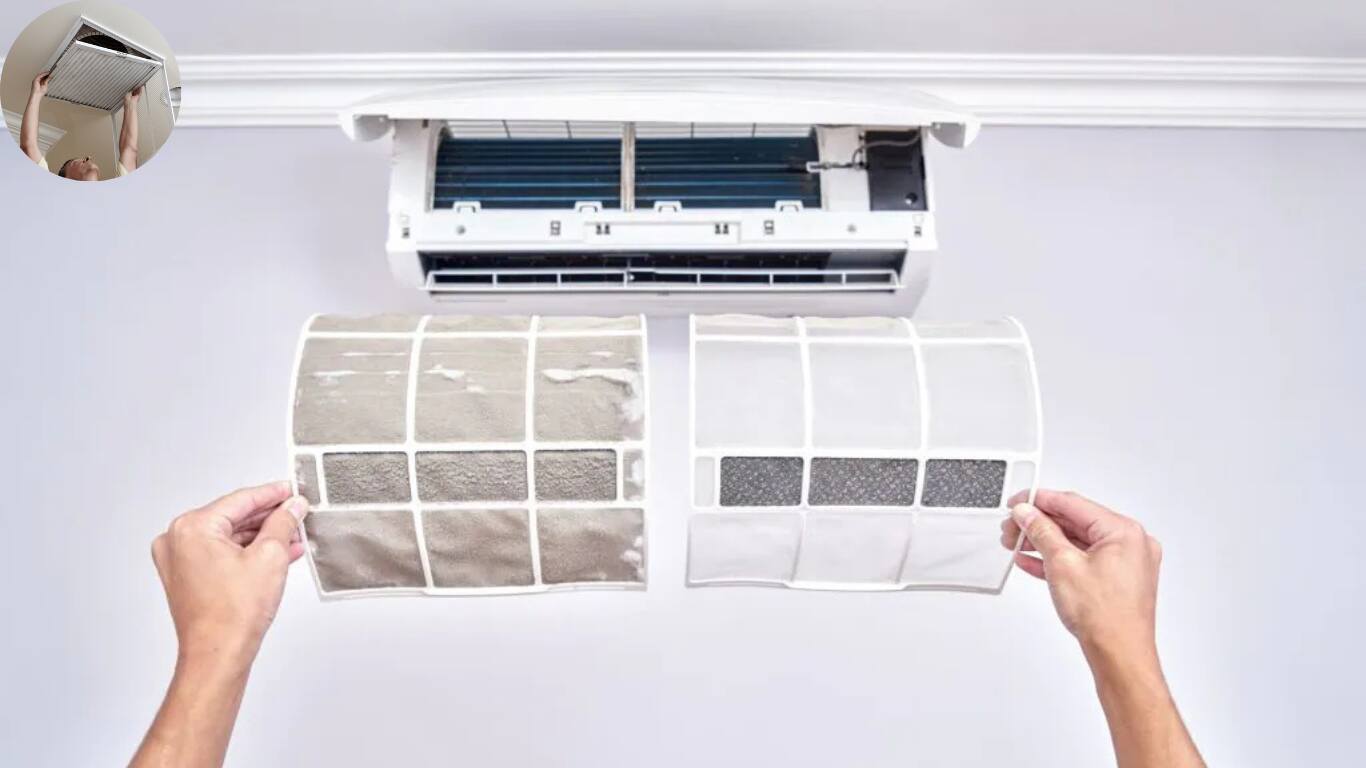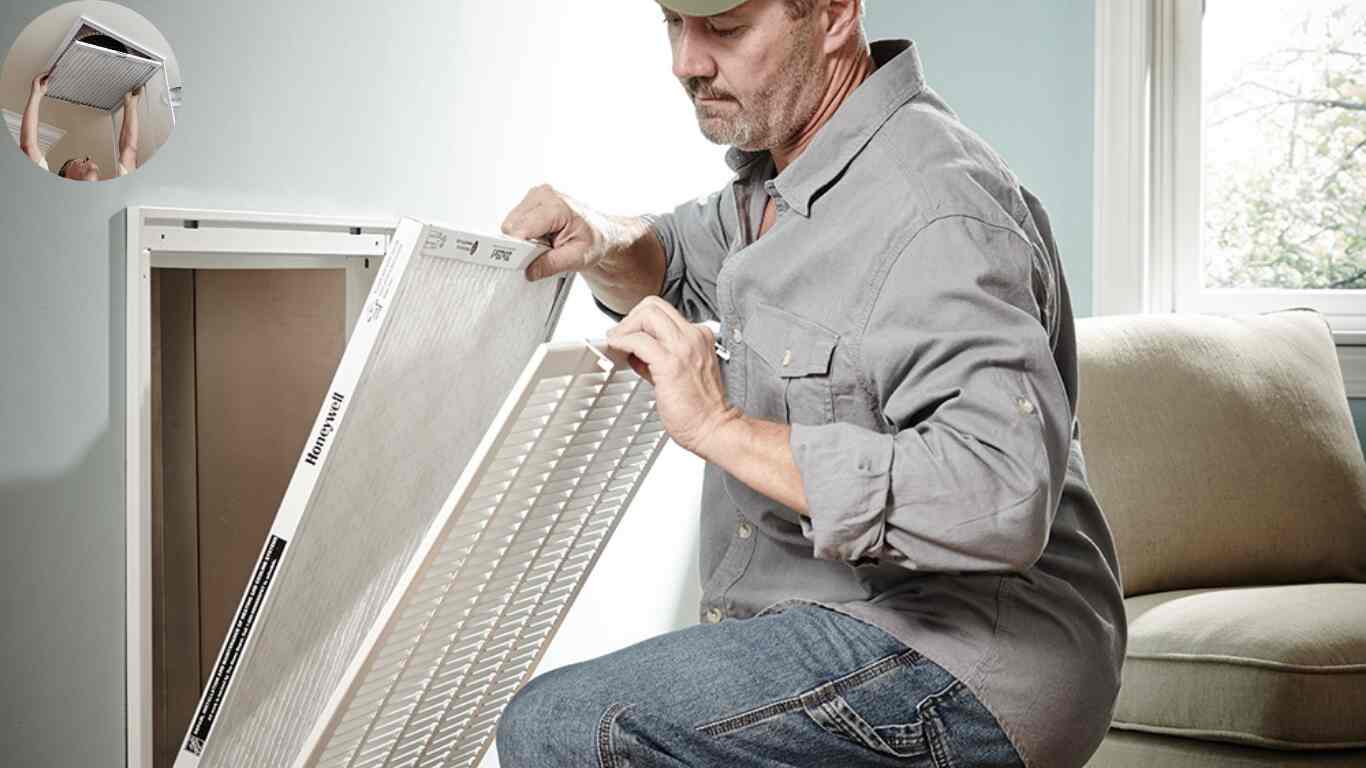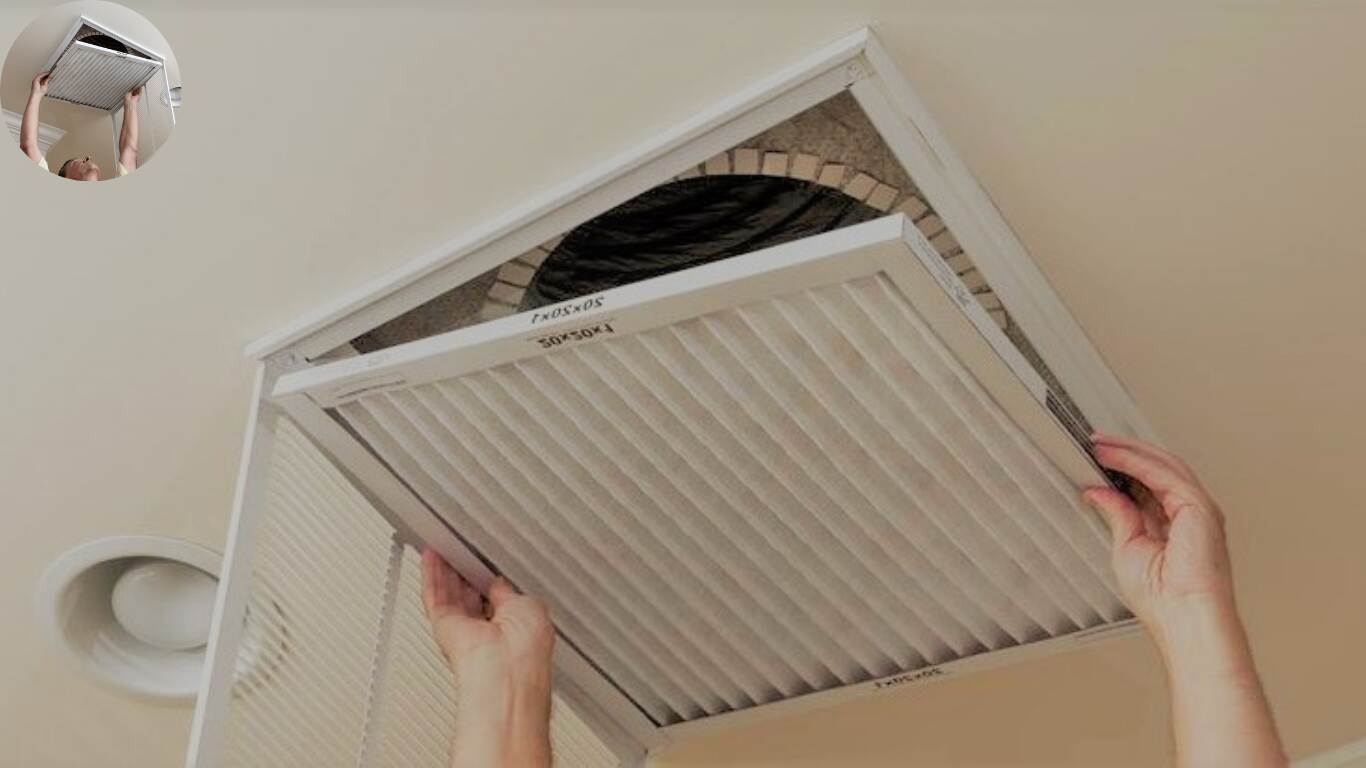When the summer heat hits, homeowners often wonder: “Does changing the air filter make the house cooler?” It’s a common question, but the answer may surprise you. Air filters play a vital role in maintaining your HVAC system and improving your home’s comfort and energy efficiency. But how exactly does a small filter impact the cooling of your house?
| Aspect | Impact on Cooling | Key Notes |
|---|---|---|
| Airflow Efficiency | Can improve system cooling capacity by restoring proper airflow | Clogged filters force AC to work harder, reducing efficiency |
| Temperature Control | No direct cooling effect, but helps maintain designed cooling performance | Clean filters prevent coil freezing and system strain |
| Energy Consumption | Reduces energy waste from restricted airflow, lowering bills | Dirty filters increase runtime and energy use |
| Air Purifiers | No temperature reduction (mentioned for contrast) | Only creates wind-chill effect via airflow |
How HVAC Systems Work and the Role of Air Filters
Knowing how an HVAC system functions is important to understand how air filters impact cooling.
What is an Air Filter?
An air filter is a component of your HVAC (Heating, Ventilation, and Air Conditioning) system designed to trap particles like dust, pollen, pet dander, and other pollutants from the air entering your system. This simple yet essential part ensures that the air circulating in your home is clean and contaminant-free.
Types of Air Filters
There are several types of air filters commonly used in homes, each varying in efficiency and design:
- Fiberglass Filters: Inexpensive but less efficient at trapping small particles.
- Pleated Filters: These are more effective at filtering dust and allergens due to their increased surface area.
- HEPA Filters (High-Efficiency Particulate Air) Capture up to 99.97% of particles, making them ideal for allergy sufferers.
- Washable Filters: Reusable filters that require regular cleaning but are cost-effective in the long run.
How Air Filters Interact with HVAC Systems
The HVAC system relies on proper airflow to function effectively. The air filter sits between the system and the air intake, trapping dust and debris to prevent it from clogging its components. When the filter is clean, air flows freely, allowing the system to cool or heat your home efficiently.
How a Dirty Air Filter Affects Cooling Efficiency
One of the most significant impacts of a dirty air filter is restricted airflow. But how does this affect your home’s cooling?
You may also read(does running the dryer heat up the house)
Restricted Airflow and System Strain
When an air filter becomes clogged with dirt and debris, it restricts the airflow into the HVAC system. This forces the system to work harder to circulate air, which can lead to:
- Uneven temperatures: Certain areas of your home may feel hotter or cooler than others.
- Increased energy consumption: Your system consumes more energy to push air through the clogged filter.
- System strain: Overworking the system can cause wear and tear, leading to costly repairs or even system failure.
Symptoms of a Dirty Air Filter
Here are some common signs that your air filter may need replacing:
- Weak airflow from vents.
- Hot or cold spots in your home.
- A noticeable increase in energy bills.
- Dust buildup on furniture and surfaces.
- Your HVAC system frequently cycles on and off.
Real-World Scenarios
Imagine this: It’s a sweltering summer day, and your air conditioner is running non-stop, but your home still feels warm. You check your air filter and find it clogged with dust and debris. By simply replacing the filter, you help restore the cool comfort in your home.
Does Changing Air Filter Make House Cooler?
Now, let’s tackle the big question head-on: Does changing the air filter make the house cooler?
The Direct Answer
Yes, changing your air filter can make your house cooler! A clean air filter ensures unrestricted airflow, allowing your HVAC system to cool your home more effectively and maintain even temperatures.
The Science Behind It
A clogged filter blocks airflow, reducing the system’s efficiency. When the filter is clean, air moves freely, ensuring that cooled air is distributed evenly across all rooms. This leads to a more comfortable and cooler indoor environment.
Supporting Statistics
- According to HVAC experts, replacing a dirty air filter can reduce energy consumption by up to 15%.
- Studies show that regular filter replacement can extend the lifespan of your HVAC system by 5–10 years.
Addressing Myths
Some people believe that expensive, high-efficiency filters are always better for cooling. While they can improve air quality, they may not necessarily enhance cooling efficiency. It’s more about choosing the right filter for your system and replacing it regularly.
Additional Benefits of Regular Air Filter Replacement
Changing your air filter doesn’t just improve cooling—it also brings a host of other benefits:
1. Improved Indoor Air Quality
A clean filter removes allergens, dust, and pollutants from the air, creating a healthier living environment. This is especially important for those with allergies or asthma.
2. Lower Energy Bills
It uses less energy when your HVAC system doesn’t have to work as hard to push air through a clogged filter. This translates to lower utility bills.
3. Extended HVAC Lifespan
By reducing strain on your system, regular filter changes help prevent breakdowns and extend the life of your HVAC unit.
4. Fewer Repairs and Maintenance Costs
Clogged filters can lead to frozen coils, overheating, and other issues that require expensive repairs. Replacing the filter is a simple way to avoid these problems.
5. Health Benefits
Cleaner air means fewer airborne allergens and irritants, which can significantly improve the quality of life for your family.
How Often Should You Change Your Air Filter?
The frequency of filter replacement depends on several factors:
General Guidelines
- Every 1–3 months: For most households.
- Monthly: If you have pets or allergies or live in a dusty area.
- Less frequently: For homes with minimal activity or high-efficiency filters.
Factors Affecting Replacement Frequency
- Pets: More fur and dander mean more frequent filter changes.
- Home Size: Larger homes may require more frequent replacements.
- Allergies: If someone in your home has allergies, replace filters more often.
Signs Your Filter Needs Changing
- Visible dirt or discoloration on the filter.
- Reduced airflow or uneven cooling.
- A musty odor coming from vents.
Step-by-Step Guide: How to Change Your Air Filter
Here’s how to replace your air filter in a few simple steps:
Tools and Materials Needed
- Replacement filter (check the size and type).
- Screwdriver (if needed).
- Gloves (optional).
Instructions
- Turn off the HVAC system: Safety first!
- Locate the filter compartment near the return air duct or furnace.
- Remove the old filter: Slide it out carefully to avoid spilling dust.
- Insert the new filter: Ensure the arrows on the filter point in the airflow direction.
- Close the compartment: Secure it properly.
- Turn the system back on: Enjoy improved airflow and cooling!
Disposal Tips
Dispose of the old filter in a sealed bag to prevent dust from spreading.
Common Mistakes Homeowners Make with Air Filters
Avoid these common pitfalls to keep your HVAC system running smoothly:
- Forgetting to replace the filter regularly.
- Using the wrong size or type of filter.
- Installing the filter backward.
- Ignoring manufacturer recommendations.
Conclusion
To answer the question, “Does changing the air filter make the house cooler?”—absolutely! Regularly replacing your air filter improves airflow, enhances cooling efficiency, and contributes to a more comfortable and healthier home environment.
So, why not check your air filter today? Making this small change can greatly impact your home’s comfort and your wallet.
You may also read(does running furnace fan cool house)
